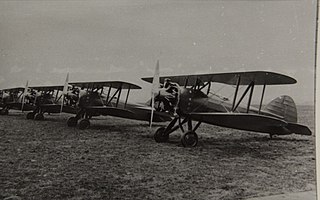
The Symphony No. 38 in D major, K. 504, was composed by Wolfgang Amadeus Mozart in late 1786. It was premiered in Prague on January 19, 1787, during Mozart's first visit to the city. Because it was first performed in Prague, it is popularly known as the Prague Symphony. Mozart's autograph thematic catalogue records December 6, 1786, as the date of completion for this composition.
Karel Husa was a Czech-born classical composer and conductor, winner of the 1969 Pulitzer Prize for Music and 1993 University of Louisville Grawemeyer Award for Music Composition. In 1954, he immigrated to the United States and became an American citizen in 1959.
Jaromír Weinberger was a Czech born, naturalized American composer.
Martin Turnovský is a Czech conductor.
Ladislav Novák was a Czech football defender and later a football manager. He played 75 matches for Czechoslovakia, 71 of them as a team captain.

Stalin's Monument was a 15.5 m (51 ft) granite statue honoring Joseph Stalin in Prague, Czechoslovakia. It was unveiled on 1 May 1955 after more than 5½ years of work, and was the world's largest representation of Stalin. The sculpture was demolished in 1962.
Ars Rediviva was a Czech classical instrumental music group, whose historically-informed performances played a key role in the revival of Baroque music in Czechoslovakia.

Władysław Marcjan Mikołaj Żeleński was a Polish composer, pianist and organist.
The Symphony No. 5 in F major, Op. 76, B. 54, is a classical composition by Czech composer Antonín Dvořák. It was originally published as Symphony No. 3.

The Avia B.122 was a Czechoslovak single-seat biplane aerobatic aircraft, which was developed in the mid-1930s. It saw some service in the first years of World War II.
Joseph Haydn's Symphony No. 27 in G major was probably written before March 19, 1761, while he was employed by Count Morzin. Its chronological position was assigned by Eusebius Mandyczewski in 1907. Although later adopted by Hoboken, Robbins Landon has subsequently revised the work's likely chronological position and now believes that the symphony is one of Haydn's earliest, written at roughly the same time as symphonies nos. 15–18. Haydn himself may have labeled the symphony his 16th, although this remains unclear.

The Asrael Symphony for large orchestra in C minor, Op. 27 (1905–1906), is a Czech symphony composed by Josef Suk. Suk wrote the work in memory of his father-in-law and teacher, Antonín Dvořák, and his wife Otilie Suková.

Emil Hlobil was a twentieth century Czechoslovakian composer and music professor based in Prague.
The Karel Ančerl Gold Edition is the collection of 42 reissued and remastered albums, recorded by Czech conductor Karel Ančerl from 1950 until 1968, when the artist left Czechoslovakia in the wake of the Soviet invasion. The CDs were released by the Supraphon label between 2002 and 2005.
Čestmír Gregor was a Czech composer, theorist and publicist. His career as a composer lasted from 1942 to 2005, and encompassed a variety of styles and formats.
Bohuslav Martinů's Violin Concerto No. 2 in G minor, H. 293 was composed between February and April 1943 between his first two symphonies and premiered on December 31 by Mischa Elman and the Boston Symphony conducted by Sergei Koussevitzky. Elman requested the concerto following the premiere of the dramatic Symphony No. 1 by the same orchestra, impressed by the work. It was referred as Martinů's only violin concerto until an earlier concerto which was thought to be lost appeared in 1968, nine years after the composer's death.
Bohuslav Martinů's Symphony No. 2, H. 295, was composed from May 29 to July 24, 1943 under a commission from the Czech community in Cleveland. It was premiered by the Cleveland Orchestra conducted by Erich Leinsdorf on October 28 that year, which marked the 25th anniversary of the foundation of Czechoslovakia, then downgraded to a Czech protectorate and Slovak puppet state under German occupation.
Josef Bárta, also Josef Bartha, was a Czech composer.

František Gregor Emmert was a composer of classical and incidental music from the Czech Republic.








